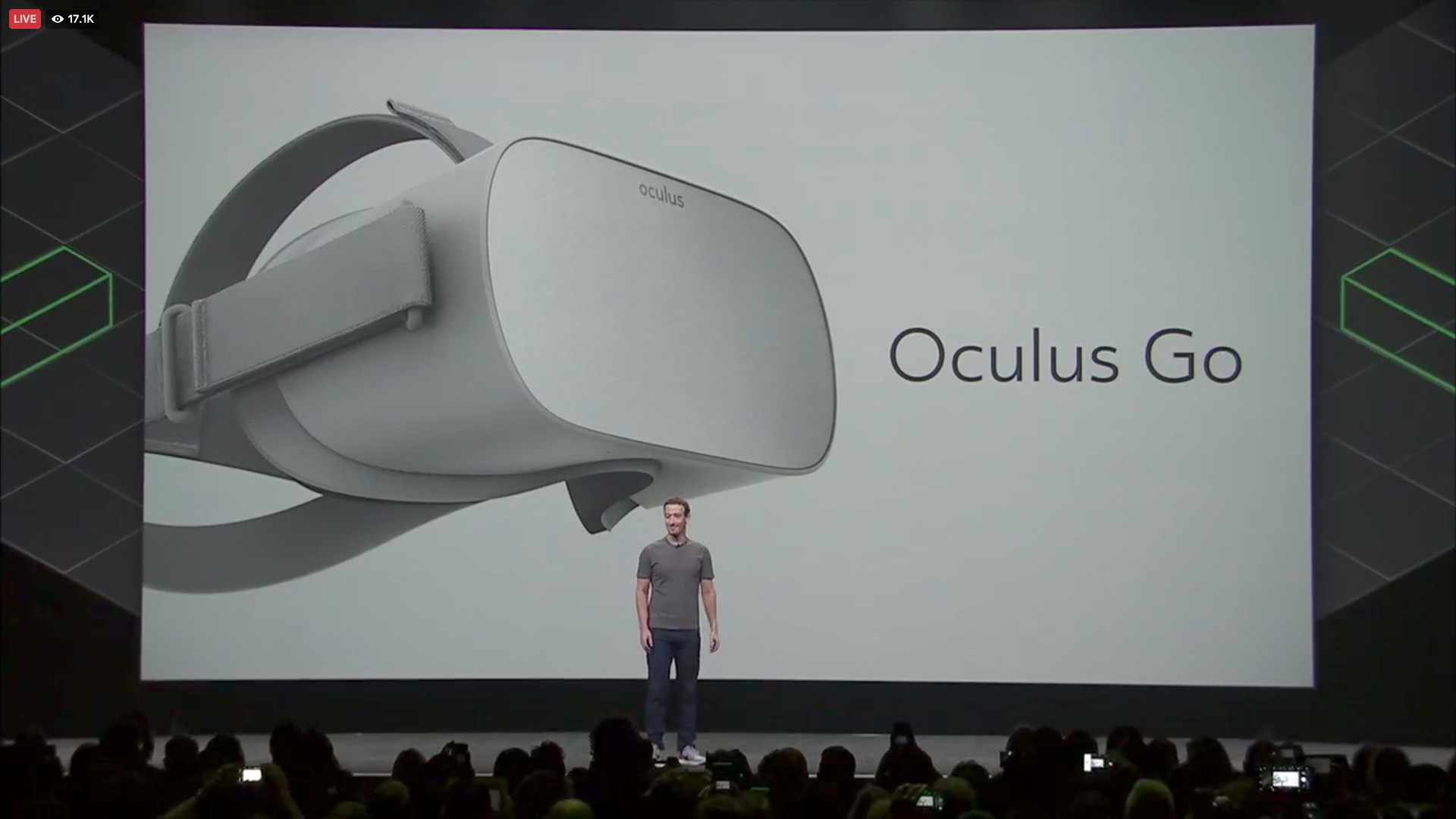Oculus Go is Facebook’s first fully wireless, standalone headset

Sign up for breaking news, reviews, opinion, top tech deals, and more.
You are now subscribed
Your newsletter sign-up was successful
Facebook CEO Mark Zuckerberg wasted no time on stage at the Oculus Connect 4 keynote. Within 10 minutes, he announced Oculus Go, the new standalone VR headset from Oculus that, according to Zuckerberg, 'is the first product to hit the sweet spot between mobile and desktop VR.'
Oculus Go is a lightweight headset that you can take with you anywhere, no mobile phone or PC required. It uses the same platform as the Samsung Gear VR series of headsets, which means any app that works for Gear VR will work for Oculus Go.
What separates the two headsets is the hardware: Inside the Oculus Go, you’ll find a custom optical design – a step up from the lenses you’ll find inside the current Oculus Rift. These lenses will reduce glare and offer a wider field of view.
Behind the lenses is a high-resolution, fast-switch LCD screen that will reduce the screen door effect that’s common on lighter-weight headsets and improve visual fidelity. Also, around the headset are integrated spatial speakers – though, the headset will offer a 3.5mm auxiliary jack if you want some privacy.
Oculus Go is slated for release early next year and will cost $199 (about £150, AU$255).
Portable powerhouse
While Zuckerberg and his new VP of Virtual Reality Development Hugo Barra talked up the Oculus Go, both were hesitant to call it equal in power to the Rift.
For now, the Go represents the middle-of-the-road option between mobile and desktop virtual reality. But that doesn't mean Oculus and Facebook haven't thought about what that future of powerful standalone VR might look like...
Sign up for breaking news, reviews, opinion, top tech deals, and more.
As soon as Zuckerberg announced the Oculus Go, he re-introduced the world to Project Santa Cruz: a standalone Oculus Rift equivalent with six degrees-of-freedom (6DOF) hand tracking. That headset will be available to developers first early next year, and then roll out to the public somewhere down the line.
- Oculus Go review: the first standalone VR headset worth your money

Nick Pino is Managing Editor, TV and AV for TechRadar's sister site, Tom's Guide. Previously, he was the Senior Editor of Home Entertainment at TechRadar, covering TVs, headphones, speakers, video games, VR and streaming devices. He's also written for GamesRadar+, Official Xbox Magazine, PC Gamer and other outlets over the last decade, and he has a degree in computer science he's not using if anyone wants it.